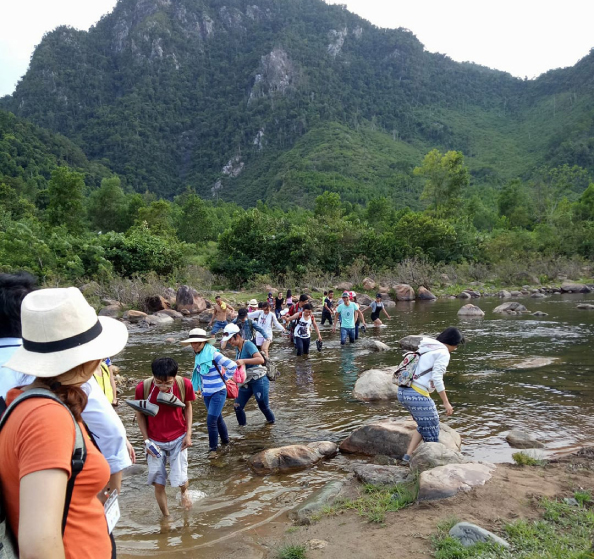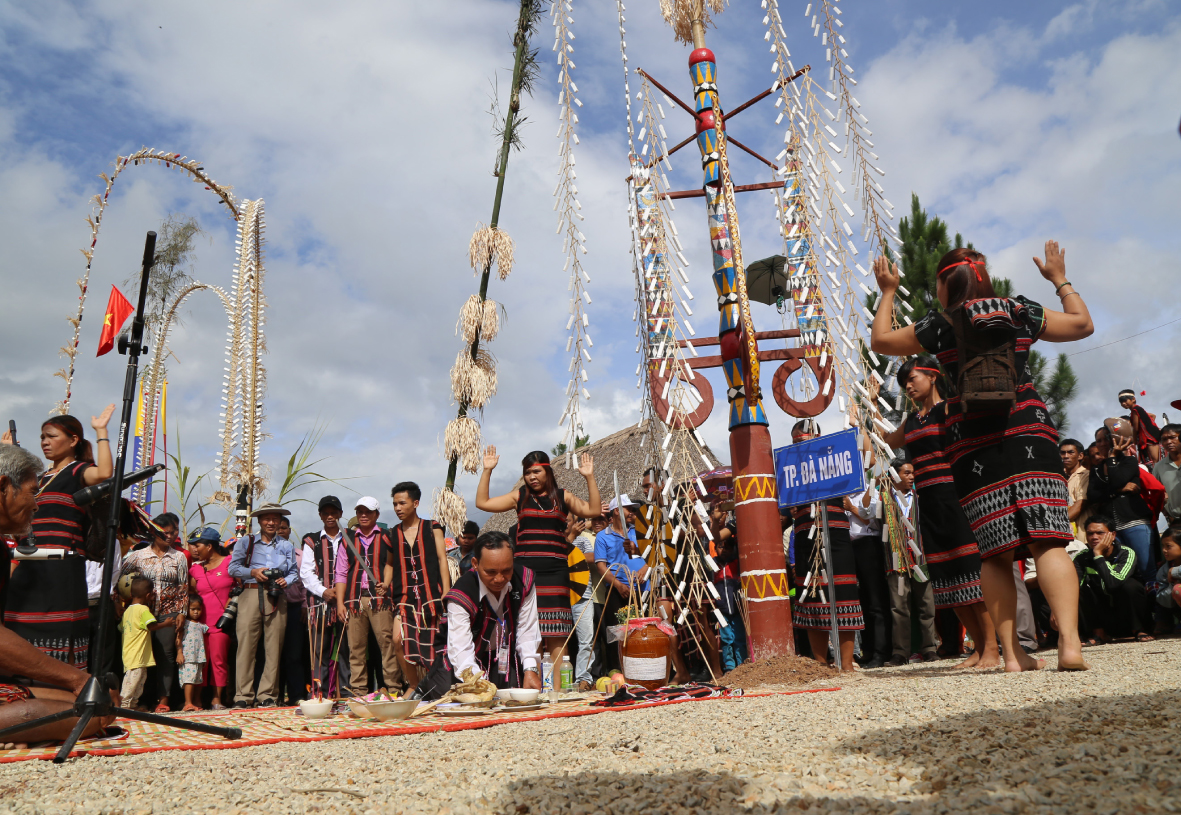Promoting development of Co Tu ethnic minority culture tour
The development of Co Tu ethnic minority culture tour in Da Nang not only helps to preserve and uphold the long-timed culture of this ethnic group, but it also enhance their living conditions.
 |
| Enjoying Co Tu ethnic minority culture tour in Hoa Bac Village |
Currently, a total of 700 Co Tu families live in the mountainous villages of Hoa Phu and Hoa Bac in Hoa Vang District.
The community-based tourism has drawn a great deal of attention from ethnic inhabitants and visitors, especially foreigners. In particular, the Co Tu people have greeted their guests in a more friendly and civilised manner.
Notably, the annual traditional Co Tu Cultural Day, which is attended by the Co Tu people living in Da Nang and Quang Nam Province, is a special cultural product featuring a series of traditional cultural programmes and competitions.
This year’s event will take place from 13 - 14 April, running day and night with the ‘tan tung da da’ dance to express gratitude to heaven, the ‘gong’ play, cross-bow shooting, stilt walking, tug-of-stick, tug-of-war, and folk games at the ‘Guol’ (long communal house) in Gian Bi Village.
Performances with such traditional musical instruments of this ethic minority group ‘Khen’, pan-pipe; ‘tobheh’, a monochord; ‘aluot’, a flute with square holes and ‘bholua’, a horn, will be shown.
Brocade weaving, crafts, fashion exhibition and cuisine—rice cooked in a bamboo tube, grilled pork and chicken, served with wild vegetables and bamboo shoots—will also be on display.
Alongside, importance is being attached to preserving traditional crafts in a bid to develop special tourism products featuring Co Tu ethnic culture.
As part of the city’s rural area upgrading programme, favourable conditions have been created for the re-introduction of ‘ruou can’ (rice wine drunk out of a jar through pipes) in Phu Tuc Village in the district’s Hoa Phu Commune after an over 40 year absence.
Thanks to sales of ‘ruou can’, the living standards of the Co Tu people, and the local villagers as a whole, have been considerably enhanced.
In addition, a training course on brocade weaving has opened for the Co Tu women with the hope of creating attractive products serving visitors that best describe the mountainous region’s imposing nature and the distinctive ethnic culture. Also, these brocade items prove the talent, ingenuity, diligence and industriousness of these ethnic women.
Over the past 2 years, the Viet Nam Global Environment Facility Small Grants Programme (GEF SGP) and the Hoa Vang District government have jointly implemented a project to conserve biodiversity of the buffer zone of the Ba Na Nui Chua Nature Reserve and the Bach Ma National Park in conjunction with preserving the Co Tu ethnic minority's culture to promote community-based ecotourism.
Co Tu ethnic minority group boasts many time-honoured traditional festivals celebrating bumper crops and brotherhood. These events play an important role in the spiritual life of the Co Tu community.
Noticeable amongst them is ‘New Rice Festival’ which annually take place in the 10th lunar month.
 |
| A scene from the ‘New Rice Festival’ featuring the Lunar New Year pole |
Through such meaningful event, the villagers thank the genies and ancestors, and pray to them to be blessed with a bumper crop, full stock of rice and maize, productive animals, prosperity, and happiness.
In particular, the festival features the Lunar New Year pole which is a piece of a bamboo 5 or 6 yards long is stripped bare excerpt for a little bunch of leaves.
Near the top is suspended a round bamboo frame holding a few little fish and bells made of baked clay that tinkle softly in the wind. Beneath this frame are votive gifts and some thorny branches. The pole is a spiritual symbol acting as a bridge between the divine world and the villagers.
In an attempt to fully tap the great development potential of Co Tu cultural community tourism, the district authorities recently asked municipal government to facilitate Co Tu families to access interest-free loans to develop their homestay services for travellers.
Alongside, the municipal Tourism Department should encourage the launching of more tours to the Co Tu community.